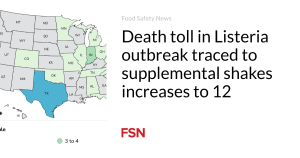Dive Brief:
- Private equity firms continued to invest in healthcare at a steady pace last year, undeterred by increased regulatory scrutiny or high interest rates, according to a new study from the Private Equity Stakeholder Project. However, investment was lower compared to 2023.
- Dental care, health IT, outpatient care, medtech and pharmaceutical services were the busiest sub-sectors for deals, according to the report. Behavioral health, disability services and home health, home care and hospice were also significant investment targets for PE firms.
- PE deal volume could increase in 2025, both due to falling interest rates and the new Trump administration, according to the report. Analysts predict the Trump administration will be more friendly to PE investors than the outgoing Biden administration.
Dive Insight:
The report tracked 1049 unique PE-backed healthcare deals in 2024, including 166 leveraged buyouts, 262 growth or expansion investments and 621 add-on acquisitions.
Still, total deal volume was down 7.6% compared to 2023. Volume was also considerably less than during 2021, when PE investment in healthcare peaked.
The “sluggish” deal volume in healthcare was most likely due to high interest rates, according to the report. Higher interest rates can suppress deal activity, because it tends to make lending riskier and more expensive, causing lenders to attach heftier conditions to loans. The Private Equity Stakeholder Project expects to see investment climb as interest rates fall.
Meanwhile, evidence is mounting that PE investment in healthcare could negatively impact care quality.
PE investors purchase assets with the intent to sell them at profit over a period of three to seven years. To do so, owners can be incentivized to cut costs or make deals that leave assets with high levels of debt, such as sale leaseback transactions. Multiple studies found PE hospital ownership has led to worse care quality, increased falls, higher costs for patients and increased employee turnover.
The healthcare companies purchased by PE firms can also often suffer financially, according to research from the Private Equity Stakeholder Project. Last year, seven of the eight largest healthcare bankruptcies were companies backed by PE firms.
Multiple state and federal lawmakers have tried to further regulate healthcare PE deals.
In January, the Senate released findings from a year-long probe into how PE ownership of two hospital chains negatively impacted operations. Massachusetts also passed a law that will allow regulators to more closely review deals involving private equity investors.
However, the report warns PE firms could use nontraditional investment strategies to evade regulatory review. Joint ventures between nonprofit health systems and PE firms are an area to watch. The partnerships could allow both parties to “evade antitrust scrutiny versus if they were engaging in traditional merger and acquisition growth strategies,” according to the report.








